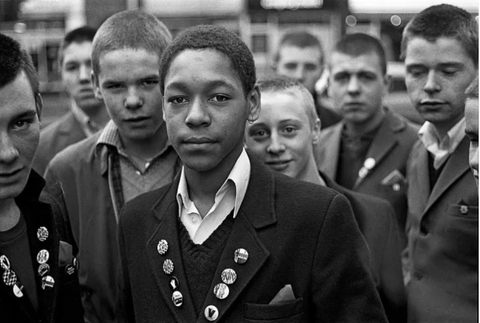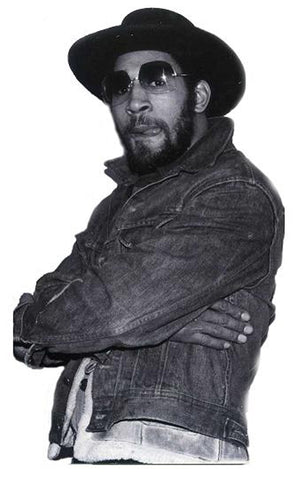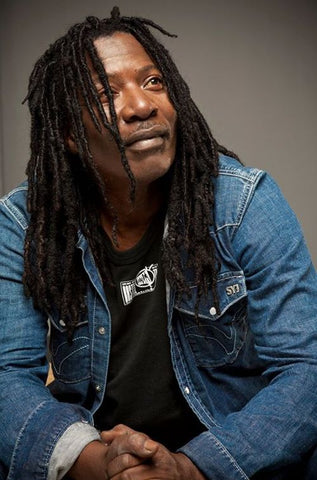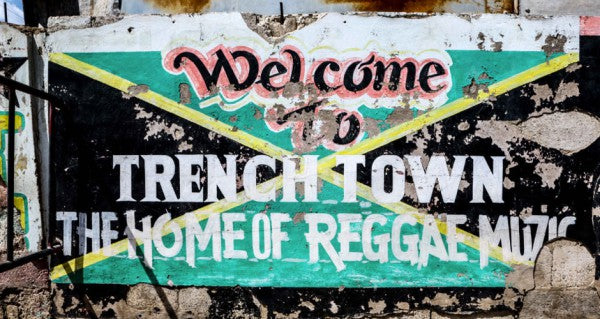In our last blog post we revealed how Jamaica had influenced the fashion industry, but today we want to delve into an art form which has not only revolutionised Jamaican culture, but has revolutionised the world... reggae music...
![]()
If I were to ask you what's the first thing that pops into mind when I say 'reggae', I'd say a good 85% of you would respond with the beloved Jamaican icon 'Bob Marley'. Of course, this is no surprise, Bob Marley was a living legend, a social advocate who used an infusion of reggae, ska and rocksteady to bring about social and political change all whilst touching the souls of many and making you forget your worries with his sweet songs. However, although an integral part of reggae culture, I dare you to think beyond Bob for a second, whilst we take you through how reggae has transformed the globe...
Born out of the Jamaican slums in the late 1960s, who would have know that sound of Jamaica would become such an important instrument to bringing about social change? The genre which was heavily influenced by Rastafarian culture was used to promote equal rights, unity and justice across the globe. The sounds had began to transcend across many, if not all continents, having a huge impact on the British, French, African and US culture.
Reggae's Impact On Europe
In the late 1960s/early 1970s, England had a large Jamaican community, most of which lived in lived in working-class areas such as Tottenham and Brixton. At the same time, a youth subculture was surfacing in the same area, they were known as the skinheads or 'mods'. The mods began to mingle with what were known as 'Jamaican rude boys' and attended black clubs, hearing the sounds Jamaica. Both subcultures realised they shared many things in common - the rebellion, the working class culture, and let's not forget - marijuana.
However, reggae music didn't just influence the skinhead movement, it also influenced the punk movement, which was partly due to Don Letts. Don Letts was a DJ at the legendary nightclub, The Roxy. Born to Jamaican parents, In 1977 he introduced reggae and dub to the punk rock scene, influencing British punk bands like The Clash and The Sex Pistols. However, Britain was not the only place in Europe which felt the impact of reggae, French too followed suit...
Bernard Lavilliers and Serge Gainsbourg were among the first white French artists to record reggae rhythms in the late 1970s. The pop singers were intrigued by reggae's rebellious aspects following the 1968 French revolution which left a sense of rebellion in the air. Whilst this was happening, young African and French Caribbean descendants began to feel a connection to the social, political and spiritual messages that reggae conveyed. This led to the birth of a French Reggae school.
Reggae's Impact On The USA
In the 1950s and 1960s, the USA welcomed hundreds of thousands of Jamaicans, many of which resided in the South Bronx. These Jamaicans never lost touch with their culture and would often go on trips revisiting their homeland. Therefore, when toasting aka DJ style became popular in Jamaica, this new genre which stemmed from reggae reached New York quickly. The genre mixed with Urban American culture stimulated the rise in rap music and the hip-hop culture in the 1970s. Jamaican-born DJ Kool Herc, who moved to the Bronx in 1967 was a pioneer in originating rap music and hip-hop culture.

DJ Kool Herc
There were definitely similarities between both genres: They both came from a context of oppression, reflected the lifestyle and realities for black people in urban ghettos, and also rebelled against establishment.
Reggae's Impact On Africa
Reggae artists have constantly paid tribute to the 'Motherland' (Africa), and the first artist to do so was Bob Marley, with songs like 'Africa Unite'. Unsurprisingly, he quickly became a symbol for African youth who started to identify with Jamaicans and the Rasta culture. It was easy for them to identify with Jamaicans because as they were both experiencing similar experiences - oppression, ghetto living. This led to African reggae beginning to emerge, such as Alpha Blondy -who's arguably one of the greatest reggae artists in the world.

Alpha Blondy

